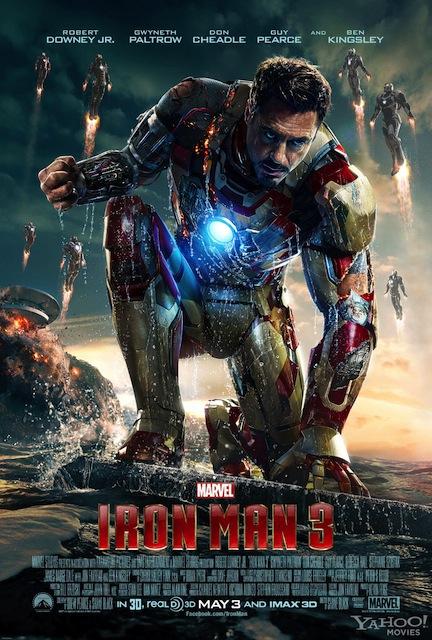Reviews of recent and upcoming DVD releases
September 25, 2013
By Billy O’Keefe
McClatchy-Tribune
“The Kings of Summer” (R, 2013, Sony Pictures)
Joe (Nick Robinson), all of 15 years old, has had enough of the oppressed high school freshman lifestyle. His best friend Patrick (Gabriel Basso) is driven so crazy by his overbearing parents that he’s literally developed hives. As for Biaggio (Moises Arias)? He’s just that strange kid whose personality makes it hard to discern whether he’s a product of creepiness or worldliness. Either way, he’s the strangely perfect complement for his two new sorta-like friends when they decide to just bail on their comfortable but socially smothered lives and live, if only for the summer, off the land in the nearby woods. Nothing about that makes much sense, and the cocktail of weirdness, wisecracks and comically fake-looking teenage beards that comprises “The Kings of Summer’s” sights and sounds is just deliberately out there enough to suggest all the senselessness is by design or at least welcome. But there’s an electric thread of angst coursing underneath all that silliness that, naive 15-year-old vessel or not, is too resonant and too dangerously appealing to just brush aside. Have you not dreamt, possibly today, of just quitting everything and cutting all of life’s silly obligatory fat until all that remains is some food, some people you care about, some stars in the sky and perhaps a roof for when it rains? “Summer” is the oversimplification of that fantasy, but as it juggles a dry comedy, an adventure and a drama with an occasional penchant to seethe, it’s an infectious manifestation of it. And with respect to the naive kids living out the dream, perhaps “Summer’s” sneakiest asset is the way all three boys carry out dialogue clearly written by (and for) daydreaming adults without breaking character, acting older than their age or alienating the teenage crowd who probably thinks this movie is for them. (It isn’t, but let them believe otherwise if they want.)
Extras: Deleted/extended scenes
“Iron Man 3” (PG-13, 2013, Disney)
You know what makes even the worst “Iron Man” movie leaps and bounds better than most other superhero films? Numerous reasons, actually, but the opening 15 seconds — wherein we watch a gallery of Tony Stark’s (Robert Downey Jr.) suits mysteriously blow to pieces while he narrates a speech that goes from profound to comically pointless to kinda sorta thoughtful again in three blinks of an eye — offer some clues. “IM3’s” biggest problem is that it’s late to a party that includes a first movie that surprised everybody, a worthy sequel with a great villain and a supergroup side project, “The Avengers,” that rates among the best superhero movies ever made. Here, the threat arrives in the form of a terrorist group, and a dubiously large amount of motive is born out of what the film demonstrates as a rather petty grudge. Stark’s witticisms are familiar, bordering on stale, the halo of fame that trails him is fully stale, and after a thousand movies about terrorists launching missiles at our country, do we need a 1,001st? But just when “IM3” seems resigned to being a decent but tired final chapter in yet another epic trilogy that’s one movie too many, something — something funny, something clever, something sweet, something sardonic, something technologically awesome or something that blows up and looks good doing so — happens. The third (and a half) chapter in Iron Man’s ascent to the cream of the superhero power rankings isn’t big on big surprises, but it’s loaded with some ingenious small ones that give surprising life to a nearly comatose outline.
Don Cheadle, Gwyneth Paltrow, Guy Pearce, Rebecca Hall and Ben Kingsley also star.
Extras: Writer/director commentary, deleted/extended scenes, three behind-the-scenes features, bloopers
“Simon Killer” (NR, 2013, IFC Films)
Though this unquestionably is his story and though we ride shotgun with him the whole way, there’s something about Simon (Brady Corbet) — a New Yorker and recent college grad doing some post-painful-breakup head-clearing with a stay in Paris — that vaguely but immediately feels just a bit off. And where Simon goes, so too does “Simon Killer,” which doesn’t venture along a story arc so much as it skates some messy figure eights through the psyche of a wayward heart in search of affection wherever it may present itself. That, perhaps, is the closest one can get to branding “Killer” with a pitch-sized premise. But that search for something takes Simon down some morally nebulous avenues, and as those lines blur, “Killer’s” genre lines do the same. Is Simon the guy he says he is, the guy those early impressions suspect he may be, or just a messy in-betweener too ravaged by a bad breakup to figure himself out, much less let us know either way? “Killer” doesn’t have the luxury of time to fully drill to the core of the answer, though the clouds that form above are thick enough to make one wonder if the world itself has that kind of time. Even if it did, would the answer be a comfort or would it undermine what turns out to be an uncomfortably engrossing character study? Theories likely abound, and “Killer” makes it fun to pass them around after the show’s over.
Extras: Behind-the-scenes features, stills gallery
“Room 237” (NR, 2012, IFC Films)
“Tiresome!” isn’t exactly a word anyone feels good about seeing in the space of a movie poster where the questionably edited raving critical quote goes. But there may be no more concise compliment and/or condemnation for “Room 237,” which collects a handful of opinions — from fans and scholars or lunatics and conspiracy nuts, pick your side — about the meaning behind seemingly every last frame that comprised the 1980 Stanley Kubrick film “The Shining.” In a fashion that’s neither completely free-flowing nor meticulously structured — divided by speaker, despite none being formally introduced or shown on camera, instead of approaching the film chronologically — “237” picks apart “The Shining” any which way it can. A theory about the appearance of Dopey the dwarf on the wall? Sure. A connection between text on a room key and Kubrick covertly confessing his role in faking the moon landing footage? Yup! The significance of a window that, according to one theorist’s map of the hotel, couldn’t actually exist? For everything from poster designs to curious perspective shifts and paper tray placements, “237’s” relentlessly verbose panelists have one elaborate explanation after another about what Kubrick was communicating under the table to his audience. And with zero desire to take a breath between hypotheses about the film and its director’s restless mind, “237” is primed to wear its audience out — whether mind-blown, overloaded, amused, exasperated, side-split or outright angry at the sheer volume of conspiracies spilling over the side — no matter who the audience is. The uninitiated, in particular, should think twice (or pop an aspirin) before engaging. There’s a temptation initially to recommend “237” to fans of film theory regardless of their familiarity with “The Shining,” but the film quickly enters a whirlwind of disorganized insularity that’s completely impenetrable if you don’t know the source material well (to say nothing of not having seen it at all).
Extras: Commentary, deleted scenes, panel discussion, two behind-the-scenes features
“Aleksandr’s Price” (NR, 2013, Breaking Glass Pictures)
There are sympathetic characters. There are sad sacks. And then, to the complete bafflement of both, there’s a guy like Aleksandr (Pau Maso), whose ability to somehow still be alive stands in remarkable contrast to how unable he is to maintain control over his own free will. Framed inside sessions with a therapist (Anatoli Grek) whose aptitude is questionable — early pearls of wisdom include “You’re a good person. I can tell by the look in your eyes” — Aleksandr’s story begins at the end as he remarks that his desperate situation as an illegal Russian immigrant, left broke and alone in New York City after his mother commits suicide, has led him down a road of bad choices. But there isn’t really a word (“bad” certainly doesn’t suffice) to describe just how poor Aleksandr is at making choices — or, more precisely, how unable he is to make any choice at all as he just kinda shrugs, stumbles and tumbles into one horrendous idea after another while simultaneously offering nothing but hurt and headaches to the few people in his life who aren’t bent on treating him like a doll. Dire straits is one thing. But to watch “Aleksandr’s Price” is to watch a video game where the main character strives to redeem himself in the cutscenes while the player controlling him drives his car off a cliff and sets him on fire when the action resumes. “Price” doesn’t seem bent on humiliating Aleksandr for its own enjoyment — the almost comically cruel ending really makes you wonder, but Maso also wrote, directed and dedicated the film to his parents — but the lengths it goes to to crush sympathy into paste make it a wonder what “Price” actually is after. Aleksandr’s therapist’s insistence that only Aleksandr controls his life is as vanilla as advice gets, but in the context of everything that happens here, it sounds only slightly less ridiculous than that bit about his trustworthy eyes.
Extra: Maso interview
(Billy O’Keefe writes DVD reviews for McClatchy-Tribune News Service
















